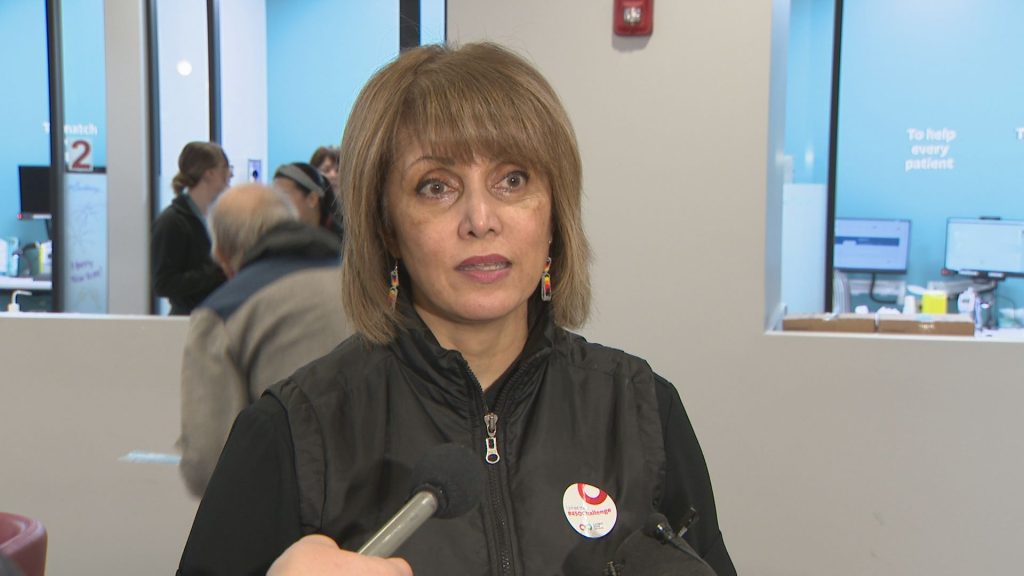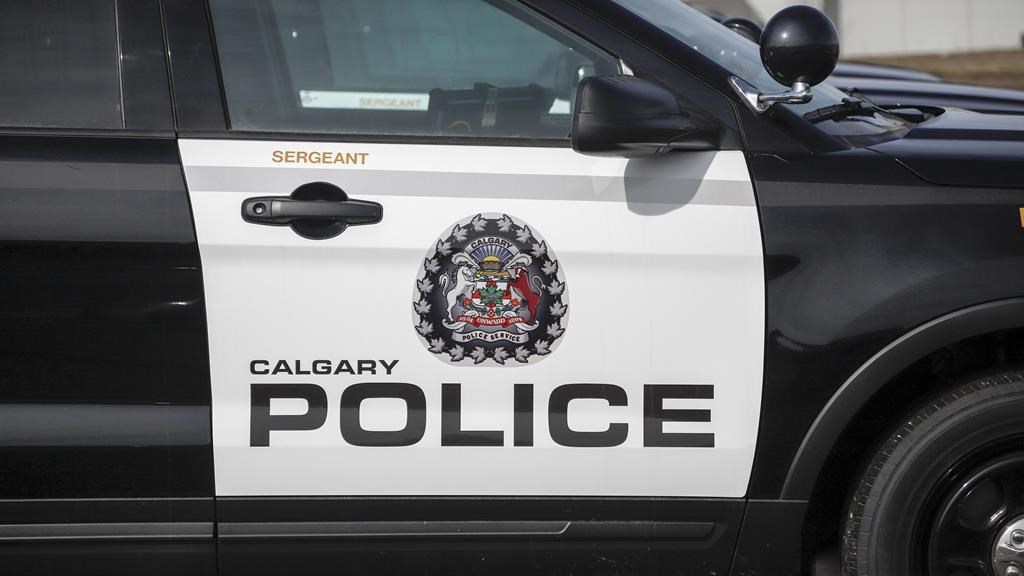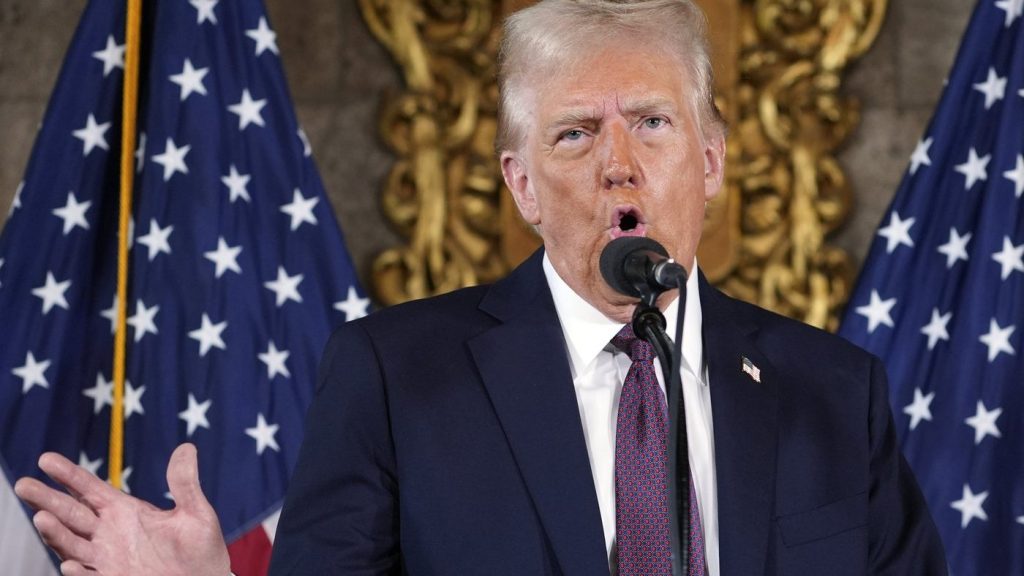Facebook suspends Donald Trump accounts for 2 years, until 2023
Posted Jun 4, 2021 12:51 pm.
Last Updated Jun 4, 2021 12:59 pm.
Facebook said it is suspending former President Donald Trump’s accounts for two years following its finding that he stoked violence ahead of the deadly Jan. 6 insurrection.
“At the end of this period, we will look to experts to assess whether the risk to public safety has receded. We will evaluate external factors, including instances of violence, restrictions on peaceful assembly and other markers of civil unrest,” Nick Clegg, Facebook’s vice president of global affairs, wrote in a blog post Friday.
The two-year suspension is effective from Jan. 7, so Trump has 19 months to go.
In a press release, the former president called Facebook’s decision “an insult.”
“They shouldn’t be allowed to get away with this censoring and silencing, and ultimately, we will win. Our Country can’t take this abuse anymore!” the press release stated.
Social platforms like Facebook and Twitter have become indispensable tools for politicians looking both to get their messages out and to raise small-dollar donations. Without the megaphone of Twitter and the targeted fundraising appeals his campaign mastered on Facebook, Trump could be at a serious disadvantage relative to other politicians.
Trump hasn’t yet said whether he plans to run again for president in 2024. But in a sign of how difficult he finds his current circumstances, the blog he launched with much fanfare earlier this year was shut down after less than a month.
On Facebook, Trump’s suspension has meant that his account is essentially in Facebook jail. Others can read and comment on past posts, but Trump and other account handlers are unable to post new material. Twitter, by contrast, has permanently banned Trump from its service and no trace of his account remains.

Facebook said it will heighten penalties for public figures during times of civil unrest and violence. In a color-coded chart on its blog post Friday, it said those who violate its policies during this time can be restricted from posting for anywhere between a month (yellow) and two years (red). Future violations, it said, will be met with “heightened penalties, up to and including permanent removal.”
Facebook also plans to end a contentious policy championed by CEO Mark Zuckerberg that automatically exempted politicians from rules that banned hate speech and abuse. The company has said it has never applied this policy to Trump.
The social media giant said on Friday that while it will still apply this “newsworthiness” exemption to certain posts it deems to be in the public interest even if they violate Facebook rules, it will no longer treat material posted by politicians any differently from that posted by anyone else. In addition, Facebook said it will make public whenever it does apply the exemption to a post.
The announcements are in response to recommendations from the company’s quasi-independent oversight board. Last month that panel upheld a decision by Facebook to keep former Trump indefinitely suspended but said the company could not merely suspend him “indefinitely” and gave it six months to decide what to do with his accounts.
In its decision last month, the board agreed with Facebook that two of Trump’s Jan. 6 posts “severely violated” the content standards of both Facebook and Instagram.
“We love you. You’re very special,” Trump said to the rioters in the first post. In the second, he called them “great patriots” and told them to “remember this day forever.”
Those violated Facebook’s rules against praising or supporting people engaged in violence, the board said, warranting the suspension. Specifically, the board cited Facebook’s rules against “dangerous individuals and organizations,” which prohibit anyone who proclaims a violent mission and bans posts that express support or praise of these people or groups.
A group calling itself the Real Facebook Oversight Board, which is critical of Facebook and its oversight panel, said in a statement Friday that the 2-year ban brings Trump back just in time for the 2024 presidential election and shows “no real strategy to address authoritarian leaders and extremist content, and no intention of taking serious action against disinformation and hate speech.”
Jim Steyer, the founder and CEO of Common Sense Media and a member of the Real Oversight Board, said the ban should have been made permanent to send a clear message about protecting American democracy.
“It’s pretty straightforward. Donald Trump incited an insurrection and the biggest attack on the Capitol in 150 years that left people dead and injured. And Facebook still doesn’t have the courage to ban him permanently from the platform,” he said.
Steyer also questioned what it meant for other parts of the world led by Trump-like leaders such as Brazil’s Jair Bolsonaro.
“I don’t think it sends a good message to the Bolsonaros of the world and other autocrats who are using this platform,” he said.
Facebook has had a general “newsworthiness exemption” since 2016. But it garnered attention in 2019 when Nick Clegg, vice president of global affairs and communications, announced that speech from politicians will be treated as “newsworthy content that should, as a general rule, be seen and heard.”
The newsworthiness exemption, he explained in a blog post at the time, meant that if “someone makes a statement or shares a post which breaks our community standards we will still allow it on our platform if we believe the public interest in seeing it outweighs the risk of harm.”
In some ways, though, the newsworthiness exemption is a bit of a red herring. Even though Facebook never applied it to Trump’s post, it did give the former president special treatment and free reign for years to spread misinformation and threats on the platform. Outside critics and even Facebook’s own employees had called for the company to remove Trump long before the Jan. 6 comments.
Last summer, for instance, Zuckerberg decided to leave up posts by Trump that suggested protesters in Minneapolis could be shot, using the words “when the looting starts, the shooting starts.” Trump’s comment evoked the civil-rights era by borrowing a phrase used in 1967 by Miami’s police chief to warn of an aggressive police response to unrest in black neighborhoods.
The former president also used his social media megaphone to attack critics and spread misinformation about elections. While Facebook put labels on many of Trump’s election posts, Trump did not face other penalties such as suspension for repeatedly and falsely claiming victory in 2020.
In Friday’s post, Clegg anticipated criticism from both sides of the political aisle.
“We know that any penalty we apply _ or choose not to apply _ will be controversial. There are many people who believe it was not appropriate for a private company like Facebook to suspend an outgoing President from its platform, and many others who believe Mr. Trump should have immediately been banned for life,” he wrote. Facebook’s job, he said, is “to make a decision in as proportionate, fair and transparent a way as possible, in keeping with the instruction given to us by the Oversight Board.”
But in staying in a mushy middle, some experts said Facebook has once again punted the decision instead of taking a firm stance.
“It’s the wait-and-see approach,” said Sarah Kreps, a Cornell professor and director of the Cornell Tech Policy Lab. “I think they’re hoping this can just resolve itself with him not being kind of an influential voice in politics anymore.”








